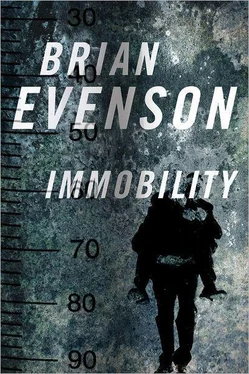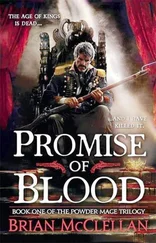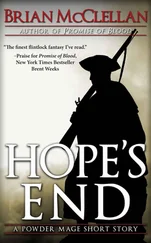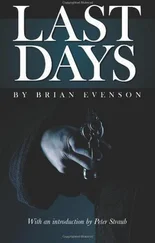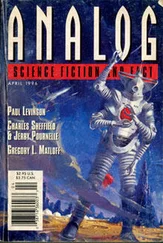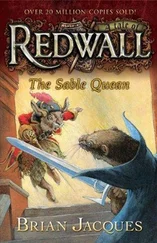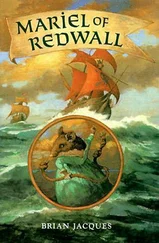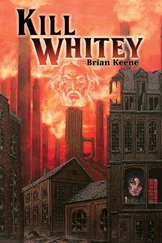“The first one,” said Horkai.
The Q shook his head. “The first of the two of us,” he corrected. “But not the first one.”
“I’m sorry,” said Horkai. “I can’t remember the name of the one who was oldest.”
“I don’t think we told you the name of the one who’s the oldest.”
“No,” said Horkai. “That’s not what I mean. The oldest of the two of you. Your name.”
“Ah,” said the Q. “Why didn’t you say so? I’m Qatik.”
“Qatik,” he said. “Of course you are.”
“Why do you say of course? Is it inevitable?”
Horkai shrugged. “I don’t know,” he said. “It’s just a way of speaking. Why were the two of you chosen for this?”
“It is an honor to be chosen,” said Qatik.
“Yes, but why?” asked Horkai. “Why you?”
“You are our purpose.”
“How did I come to be your purpose?”
“You have always been our purpose,” said Qatik.
They moved forward for a time in silence, Qatik still clinging to his brother. Horkai tried again.
“What do you think of Rasmus?”
For a moment Qatik didn’t speak. “What do you mean?” he finally said. “He is Rasmus.”
“What do you mean by ‘He is Rasmus’?” asked Horkai, confused.
“Exactly that,” said Qatik. “Rasmus is Rasmus and is no other.”
“But that doesn’t explain what you think of him,” said Horkai. “Do you like him?”
“He is Rasmus,” said Qatik. “He has his purpose. How can I judge how well he serves it? His purpose is different from our purpose and I do not understand it nearly as well as I do my own. That is proper. Surely you can see that?”
“Yes, I suppose,” said Horkai. “But what does that have to do with whether you like him or not?”
“Exactly. How can I like or dislike someone whose purpose I imperfectly understand? You, however, I can speak about with more authority. You are the burden. As far as I understand that portion of your purpose, you fulfill it admirably. You are sturdy but not overly heavy. You do not struggle when you are carried, you do not scream except when injured, and you do not fall off if you are not tied on. Burden, I like the way you fulfill your purpose.”
“Call me Horkai,” he said. “And liking the way I fulfill my purpose is not the same as liking me.”
“But what are we if we are not our purpose?” asked Qatik. “Burden Horkai, I like the way you fulfill your purpose.”
“Just Horkai,” said Horkai.
They might have talked more, but Qanik grunted and shrugged Qatik’s arm off his shoulder. Qatik fell silent, gradually drifted away. They walked, faster now, Horkai gently rocking up and down as they went.
* * *
THE ROAD TOOK THEM SLOWLY UP, edging closer to the mountains—unless it was the mountains that came closer of their own accord.
He thought he saw movement in one of the housing complexes they passed, a series of ruined duplexes that had once been identical and now were collapsed in somewhat disparate ways. Another flat, empty space, perhaps an old sports field. He could see it in his mind, green as it had been, rather than the slightly concave rectangle of dirt it was now. Things were coming back to him, though slowly, and not the important things. Or was it simply his imagination making an educated guess about what had been there?
A huge gouge in the ground 30 feet wide and 150 long, either a long-interrupted construction site or the result of some instrument of devastation. Farther on, in the dust, to one side of an intersection, was a metal signpost, bent over and crushed, the sign itself buried in the dust. Qatik stopped and dragged it up, straightening it until they could see at the end of it the octagonal shape of a stop sign, the word STOP faded but still faintly visible on it.
“What does it say?” asked Qatik.
“Have you never seen a stop sign?” asked Horkai.
Qatik shook his head.
“Can’t you read?”
Within his hood, Qatik shook his head again. “Neither of us read. But I can recognize letters.”
Beneath him, he felt Qanik nod. “It’s not important for everyone to read,” said Qanik. “Some read and some do other things. We all have our purpose.”
“Who told you that?” asked Horkai. “Someone who can read, I bet.”
Not detecting the irony in his tone, Qanik nodded. “Our leader,” he said. “Rasmus.”
“Should we stop?” asked Qatik. “As the sign instructs?”
“It isn’t meant for us,” Horkai said. “And besides, we’ve already stopped. Now we can go on.”
Qatik let the sign fall. They walked on, Qanik stopping every once in a while to reposition Horkai on his shoulders. A collapsed strip mall, beside it a building mostly intact. Probably a bank, Horkai thought, and then realized that yes that was what it was. He wasn’t speculating, he was remembering, this time he was almost certain of it. There were areas that were oddly undamaged—houses with their windows broken out and bricks stripped of paint but otherwise more or less habitable. And then there were other areas that had been all but leveled by mortars or shock waves or dust storms or other weather. Sometimes both areas stood side by side, with a sharp transition dividing one from the other, the whole arrangement artificial and arbitrary enough to make him wonder if it was real.
A Mormon ward house, little left of it beyond a weathered spire and a flattened roof. The houses became sparser, thinning out, and then they thickened momentarily again before thinning out further still.
They came to a large intersection, the road crossing it almost as big as the one they were traveling, and the mules stopped.
“Which way?” asked Qatik.
Horkai shook his head. “I don’t know,” he said.
“Which way?” asked Qatik again, as if he hadn’t heard. Not knowing what else to do, Horkai pushed on the back of Qanik’s head until he moved out into the intersection. From there, he looked to either side. To the east, the road ran quickly south, trailing up a high ridge. To the west, it moved straight ahead, climbing very slowly. In front of them, it continued roughly north, coming still closer to the mountains.
The map Rasmus had given them followed a path between the mountains and the lake. For now, thought Horkai, they would stay close to the mountains and wait for the lake to appear. He pushed on the back of Qanik’s head again, and they started forward and through the intersection. Qatik hesitated a moment and then followed as well.
* * *
THEY WALKED IN SILENCE for another mile or nearly so, the mountain building up to one side. The wind and dust were making him cough. An old, severely damaged electric substation, transformers crumpled or fallen over in the dust. And then the road split again, one strand of it following a slow curve westward and uphill, toward the lake, the other threading down and into the mouth of a dust-clogged canyon, immediately curving out of sight.
“Which way?” asked Qatik again.
“Maybe the canyon,” said Qanik.
“Not the canyon,” said Horkai, on impulse.
“Why not?” said Qanik from below him. “The canyon. It goes north, we’re going north. We should take the canyon.”
“I don’t think it goes where we’re going,” said Horkai.
“Why not?”
“I don’t know,” said Horkai. “It’s just what I feel.”
Qatik came around in front of the other mule until their faceplates were nearly touching. They stared at each other for a long time, perhaps moving their lips as well, perhaps even reading each others’ lips—it was impossible for Horkai to say, since from above he couldn’t see their faces. And then, finally, Qatik backed up, looked at him.
Читать дальше
